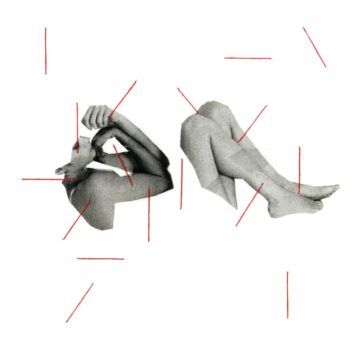Lucinda Rosenfeld in The New York Times:
 For generations, Anna Karenina and Emma Bovary have loomed as the nonpareils of self-loathing literary heroines. For Anna, guilt over having abandoned her husband and child, paired with a jealous nature, compels her to destroy the love she shares with Count Vronsky — and head for the train tracks. For Emma, dumped by a conscience-free bachelor with whom she has an extramarital affair — and unable to repay the debts she accrues on account of her shopping addiction — a spoonful of arsenic ultimately beckons. Lately, however, Tolstoy and Flaubert have had stiff competition on the self-harm front, thanks to women novelists intent on exploring their female characters’ propensity to act out their unhappiness on their bodies.
For generations, Anna Karenina and Emma Bovary have loomed as the nonpareils of self-loathing literary heroines. For Anna, guilt over having abandoned her husband and child, paired with a jealous nature, compels her to destroy the love she shares with Count Vronsky — and head for the train tracks. For Emma, dumped by a conscience-free bachelor with whom she has an extramarital affair — and unable to repay the debts she accrues on account of her shopping addiction — a spoonful of arsenic ultimately beckons. Lately, however, Tolstoy and Flaubert have had stiff competition on the self-harm front, thanks to women novelists intent on exploring their female characters’ propensity to act out their unhappiness on their bodies.
The 20-something protagonists of Sally Rooney’s two novels ask their lovers to hit them in bed. Frances, of “Conversations With Friends” (2017), a college student and aspiring poet, also scratches, pinches and gouges her skin. “I felt that I was a damaged person who deserved nothing,” she muses, describing her body as “garbage.” Marianne, in “Normal People” (2019), sabotages the love she shares with a sensitive classmate in favor of, first, a rich guy who mistreats her and, later, a creepy artist who takes nude pictures of her in degrading positions and does “gruesome” things to her during sex. This is all apparently because Marianne regards herself as “a bad person, corrupted, wrong,” and “all her efforts to be right, to have the right opinions, to say the right things … only disguise what is buried inside her, the evil part of herself.” Similarly, Edie, the self-described “office slut” in Raven Leilani’s debut, “Luster” (2020), encourages her married lover to shove and punch her, and sticks a samurai sword into her hand.
More here.
